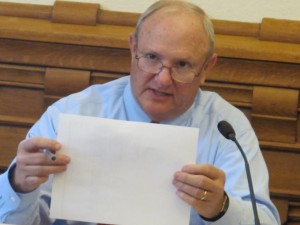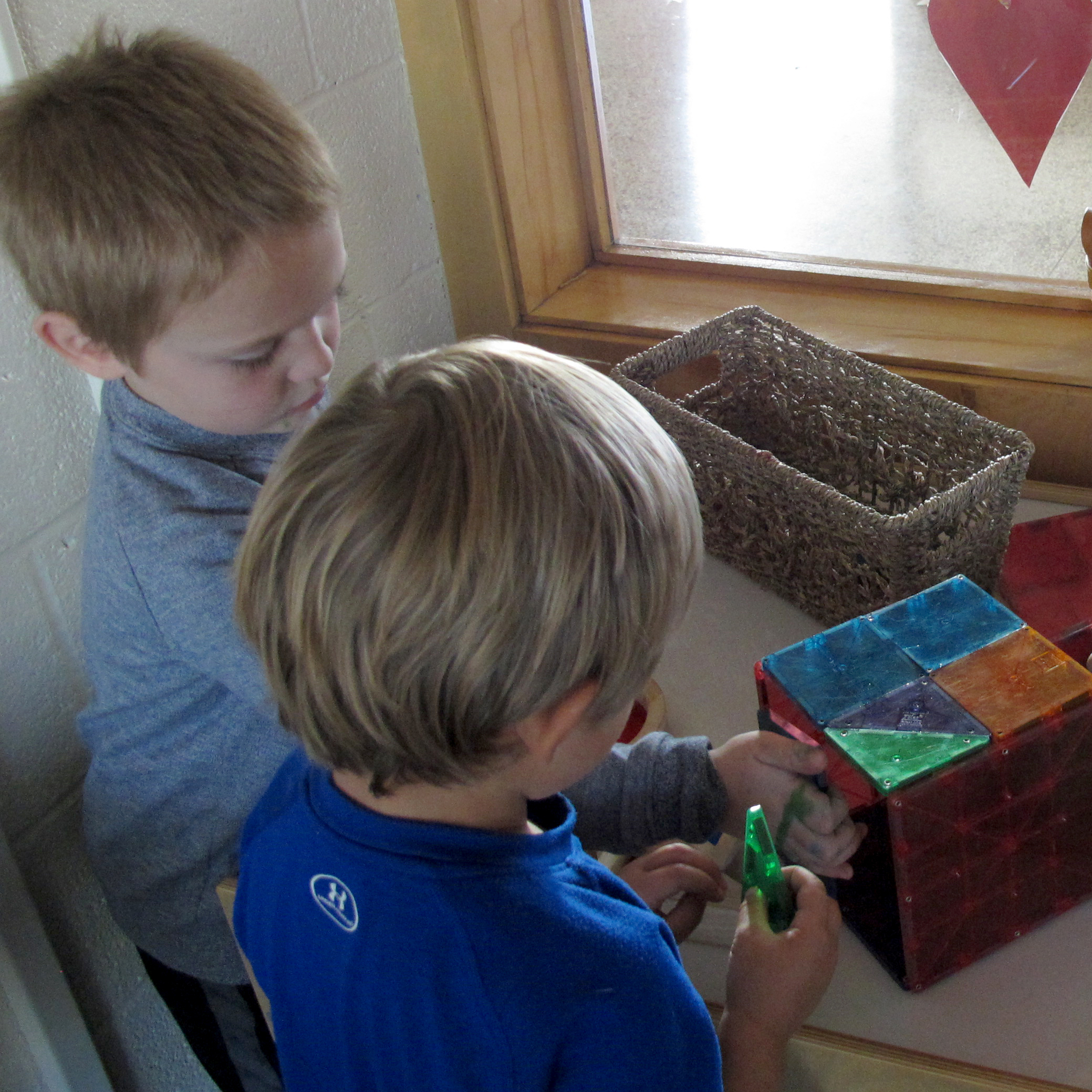Q&A: Why Indiana Lawmakers Aren’t Ready To Fund Preschool

Kyle Stokes / StateImpact Indiana
Sen. Luke Kenley, R-Noblesville, sits on the Indiana Senate Education Committee and chairs the Appropriations Committee.
“This,” says Sen. Luke Kenley, R-Noblesville, referring to a proposed preschool program, “is almost a potential budget buster.”
Gov. Mike Pence asked state lawmakers this year to approve a small-scale preschool pilot program for low-income 4-year-olds. But Kenley, who chairs the powerful Senate Appropriations Committee, says he’s not ready to commit to state-funded pre-K.
That’s why the Senate Education Committee said the governor’s preferred proposal was too expensive and elected instead to study the issue this summer.
Though there’s a chance lawmakers could still approve some funding for a pilot program, budget hawks remain skeptical of the plan.
- Listen: Why Indiana Senate Republicans Are Worried About Pre-K CostIndiana Public Broadcasting’s Brandon Smith discusses the possibility of state-funded pre-K with Senate Appropriations Chair Luke Kenley, R-Noblesville.Download
Here’s a lightly-edited transcript of our interview with Kenley:
Brandon Smith, Indiana Public Broadcasting: This is the second year in a row the Senate Education Committee has scaled back a preschool pilot proposal that came over from the House. What reservations do Senate Republicans have with state-funded pre-K?
Luke Kenley: We have two sets of reservations. One of them has to do with the policy of the issue itself. The second reservation has to do with the potential cost because this is almost a potential budget buster.
You talked about the first reservation is with the policy itself. What exactly about state-funded pre-K gives you pause?
We think in most families that it’s more important for the family to be engaged with the young child, do the reading to the child, participate in all those things, and participate when they go to school as well. We don’t think that the state, for example, to go to an extreme, should take all children at a young age and raise them communally. That’s the picture that some of our caucus members have in their minds.
You also talked about concerns over the cost of something like this. You told the bill’s author, Rep. Bob Behning, R-Indianapolis, that passing this program in a non-budget year would require lawmakers give it special treatment when you write a budget next year in 2015. Would the conversation have been different if this were a budget year, or do you still think this is something that has to go to a summer study committee first?
I think we’re not ready. I think the 10 points we raised for the summer study committee are all things we need to discuss. For example, we have a Head Start program in Indiana that does deal with age group there. It’s a federal program. It costs $115 million a year for the Indiana segment … In addition, we have another set of federal dollars of about $180 million dollars for childcare development — and mostly it’s childcare funds — so we have two resources that equate almost $400 million of federal dollars that could be used for this. I think we need to see if we can use those dollars first for a program.
The way the bill was drafted, about half the children in each age group — age 4 — were going to be qualifying for this program. The program would then qualify 40,000 children every year. Well, the program itself was projected as a $6,800 program per child. $6,800 times 40,000 is $272 million. It would far surpass any increase in school funding we’ve given to the K-12 schools in recent years.
Do you think the state has the infrastructure to administer a voucher-style pre-K program?
One of the things the bill itself says if they attend a pre-K program and get some education on this that they are then qualified for a voucher for a private school without ever going to a public school. So that’s an enormous expansion of the voucher program which is an enormous additional cost that we need to consider before we jump into these activities.
It seems pretty likely Rep. Behning will offer a similar proposal next session. Is the third time the charm, or is it too soon to say if 2015 will be the year for pre-K?
I think with the 10 points that were put together for the study, which were put together very thoughtfully, if we can answer those questions, maybe we can find a way to begin to agree on which group should receive services, who should be delivering the services — for example, their program has the FSSA, which is basically our welfare department, delivering this program. But if it’s designed to train a child to be ready for school, then the State Board of Education and the Department of Education should be establishing what should be taught, how you should be tested and how you should be prepared because they do that all the way through K-12.
Podcast: Play in new window | Download

